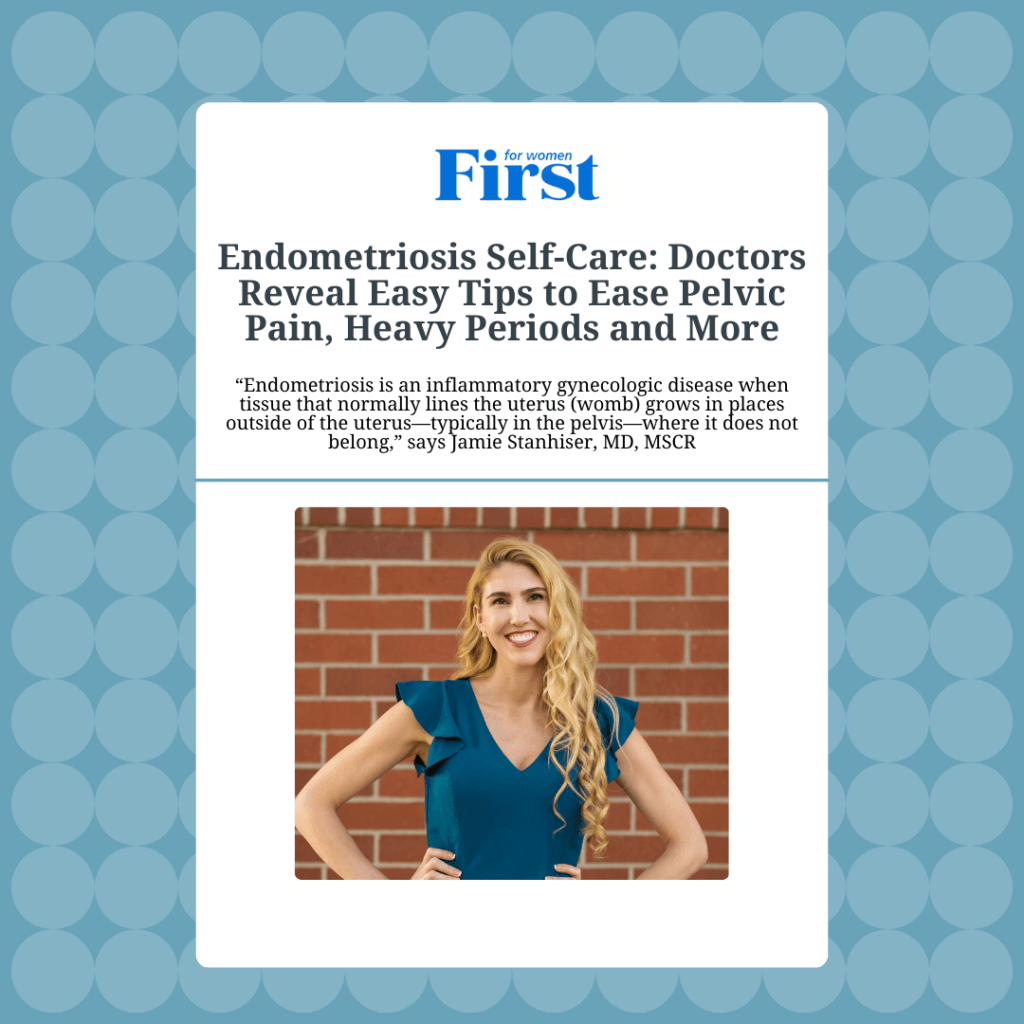
Coping with endometriosis can be challenging, especially with symptoms like pelvic pain, heavy periods, and fatigue. At RPSD, Dr. Jamie Stanhiser, a leading double board-certified reproductive endocrinologist, shares insights on self-care approaches to manage endometriosis effectively.
Dr. Stanhiser explains that endometriosis occurs when tissue similar to the uterine lining grows outside the uterus, typically in the pelvic area. This tissue bleeds and grows like the uterine lining, causing inflammation and scarring that can lead to significant discomfort.
“Endometriosis is an inflammatory gynecologic disease when tissue that normally lines the uterus (womb) grows in places outside of the uterus—typically in the pelvis—where it does not belong,” says Jamie Stanhiser, MD, MSCR, board-certified physician and reproductive endocrinologist at Reproductive Partners Fertility Center.
This can happen in the fallopian tubes and ovaries and sometimes outside the pelvic organs, affecting the intestines, bladder or stomach area. “Just like the lining of the uterus grows and bleeds (sheds) each month, the endometriosis tissue also grows and bleed, but it’s trapped in the pelvis, which can cause inflammation and scarring,” adds Dr. Stanhiser.
To ease symptoms, Dr. Stanhiser and other experts recommend:
For those finding limited relief through lifestyle changes, medical treatments—including pain medication, hormonal therapy, or surgical options like laparoscopy—might be recommended. Consulting a healthcare provider, like Dr. Stanhiser, can help tailor these options to individual needs.
For more on Dr. Stanhiser’s approach to compassionate endometriosis care, visit HERE and learn about her contributions to empowering patients through every step of their journey.
Ready to take the next step to parenthood? Schedule a discovery call today!
Our skilled fertility specialists are here to help. Contact us today and let’s discuss the next phase of your fertility journey.